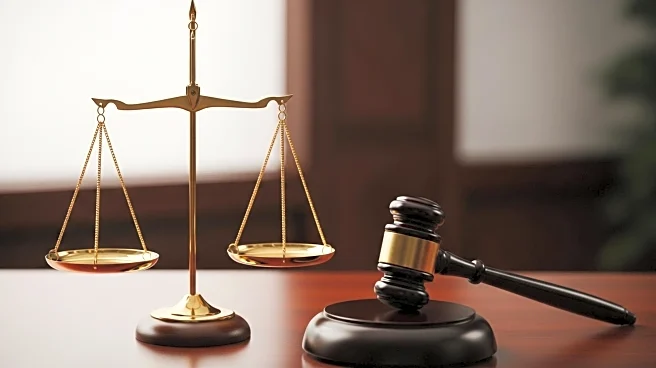What's Happening?
The Supreme Court has agreed to hear a challenge to Hawaii's gun law, which restricts carrying firearms on private property without consent and bans them in public parks, beaches, government buildings, and establishments serving alcohol. This case, set for the new term beginning Monday, could have significant implications for gun rights nationwide. Hawaii's law was enacted in 2023 following the Supreme Court's decision in New York State Rifle & Pistol Association v. Bruen, which expanded gun rights and required historical justification for gun restrictions. Challengers, including Maui residents with concealed-carry permits and a gun rights group, argue that Hawaii's law undermines the Second Amendment rights recognized in Bruen. The Trump administration supports the challenge, stating that Hawaii's law effectively bans public carry by requiring property owners to post signs allowing guns.
Why It's Important?
The Supreme Court's decision to hear this case could reshape gun rights and restrictions across the United States. If Hawaii's law is overturned, it may lead to broader access to carrying firearms in public spaces, affecting businesses and tourism, particularly in states with similar restrictions. The case highlights the ongoing debate over balancing public safety with Second Amendment rights. Businesses in Hawaii have expressed concerns about the potential impact on their operations and customer perceptions if they must publicly declare their stance on firearms. The outcome could set a precedent for how states can regulate gun carry on private property and in public areas, influencing future legislation and legal challenges.
What's Next?
The Supreme Court's new term will begin with oral arguments on other cases, but the Hawaii gun law challenge will be a major focus. The decision could lead to changes in how states implement gun laws, particularly regarding private property rights and public carry. Stakeholders, including gun rights advocates, state governments, and businesses, will closely monitor the proceedings. The ruling may prompt legislative adjustments in states with similar laws and influence public discourse on gun rights and safety. The case is part of a broader term that includes challenges to President Trump's initiatives and other high-profile issues.
Beyond the Headlines
The case raises questions about the balance between individual rights and public safety, as well as the role of historical context in modern legal interpretations. It could lead to discussions on the ethical implications of gun laws and their impact on community safety and business operations. The decision may also affect cultural attitudes towards firearms and property rights, potentially influencing long-term shifts in public policy and societal norms.









